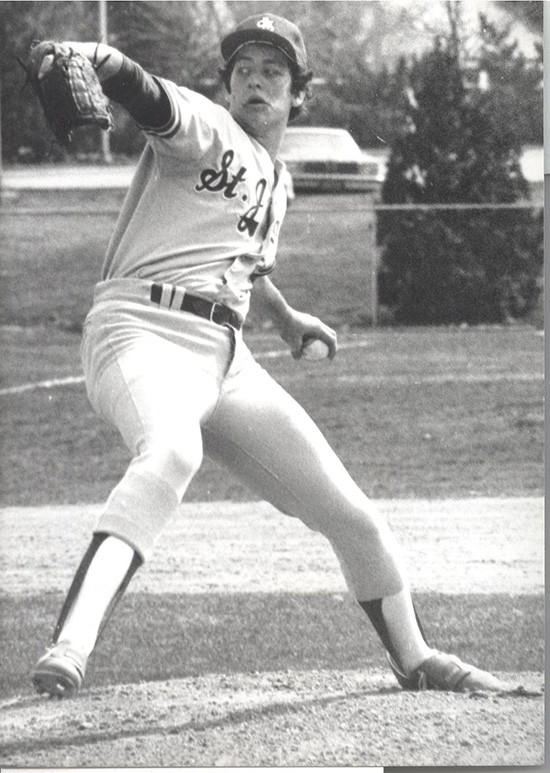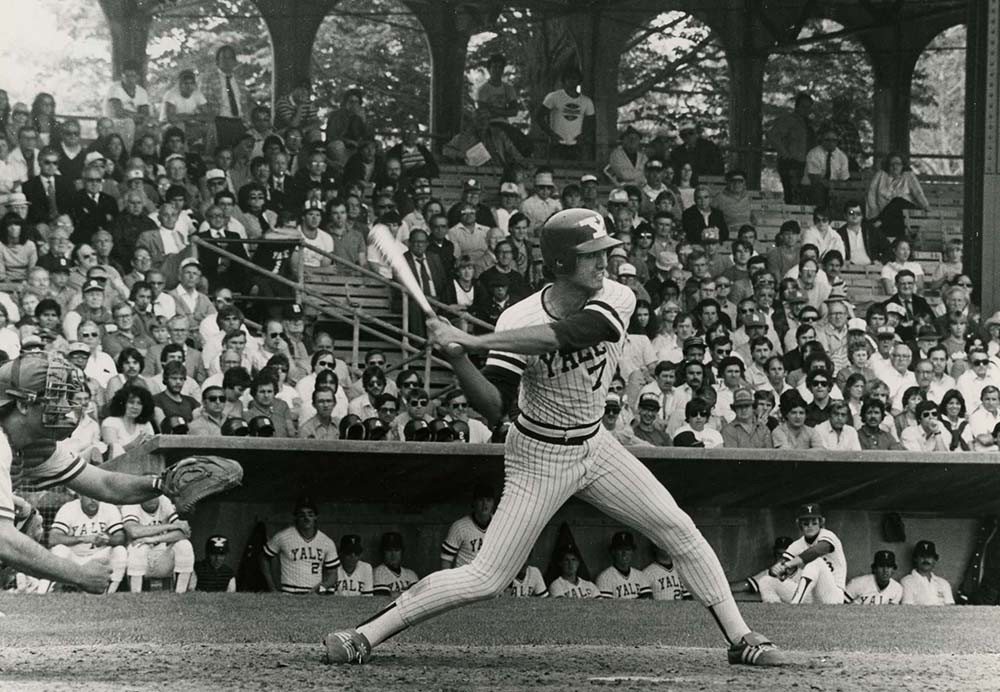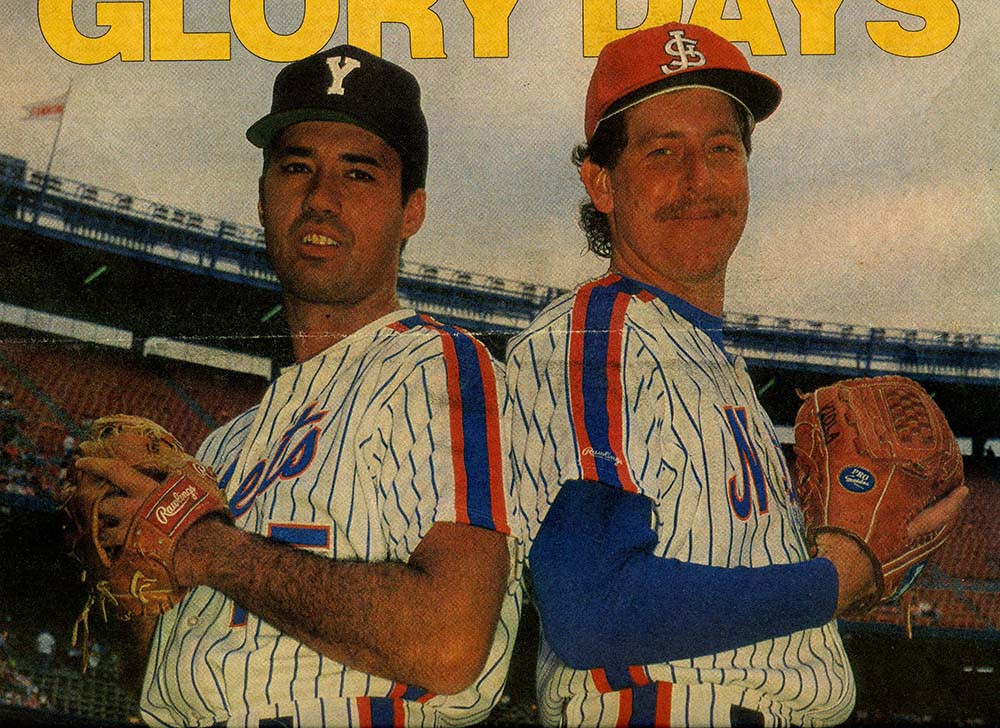More On: college baseball
UConn pitcher Justin Willis: How I escaped from terrifying Florida condo collapse
Legendary Ron Darling-Frank Viola game turns 40: ‘Intertwined for life’
Ron Darling didn’t allow a hit over the first 11 innings and finished with 16 strikeouts, a performance he called his finest at any level. Frank Viola tossed 11 shutout innings.
To this day, Tom Kokoska still marvels that Frank Viola’s curveball seemed to drop out of the sky. Don Giordano remembers Ron Darling’s slider starting at a right-handed hitter’s head and somehow landing on the outside corner.
Both were basically unhittable 40 years ago today, May 21, 1981, two future major league pitchers matching up in the NCAA Tournament northeast regional opener in what some consider the greatest college baseball game of all time at Yale Field in New Haven, Conn.
There was national powerhouse St. John’s coming off a College World Series appearance the year before, owners of a 31-2 record. In the opposing dugout was Ivy League foe Yale, which had 12 losses, but did have Darling, a two-time All-American who was also its top hitter.
Darling didn’t allow a hit over the first 11 innings and finished with 16 strikeouts, a performance he called his finest at any level. Viola tossed 11 shutout innings. The game wasn’t decided until the 12th, when St. John’s second baseman Steve Scafa blooped in the game’s only hit and stole home for the afternoon’s lone run.
“Sixty-one years old, being involved in the game for over 50 years,” Viola said in a phone interview, “and I can honestly say today that still has been the best game I’ve ever seen pitched to go along with one of the best games I’ve ever been a part of.”
St. John’s arrived in New Haven cocky and expecting to win. It had two elite prospects in Viola and fellow southpaw John Franco, a team of city guys who weren’t afraid to talk trash. Darling was meanwhile hopeful Yale could hold its own against such a difficult opponent.
It wasn’t long before both teams realized what was in store. The Johnnies’ chatter quickly subsided. Viola, now a pitching coach with the independent league High Point Rockers in North Carolina, recalled one of his teammates coming back to the dugout in awe after striking out in the first inning.
“It’s going to be a long day, boys. Oh my God, it’s the best stuff I’ve ever seen,” the player said of Darling, who would be the ninth-overall pick in the 1981 draft and go on to win the World Series with the Mets five years later.

While Darling was mowing down the Johnnies, slicing through their lineup, Viola was matching him zero for zero. Yale had chances, registered seven hits and drew four walks, but Viola wouldn’t break. Darling was so dominant, though, it didn’t feel like he was tossing a shutout.
“I pitched pretty damn well, and I felt like I was losing every inning,” said Viola, a second-round pick of the Twins that year who won an AL Cy Young Award and reached three All-Star Games. “Every time I crossed that first-base line, I just had to look back at the scoreboard to make sure there was a zero up there to make sure it stayed tied.”
As each inning passed without St. John’s registering a hit and Yale scoring a run, the crowd began to increase, up to 2,500. A local television crew arrived in the middle innings as word spread. Tension grew on the field. In the stands, where baseball writer Roger Angell of the New Yorker and celebrated former Red Sox pitcher Smoky Joe Wood sat, it became quiet.
“A focused intensity all throughout the stadium,” is how Kokoska, Darling’s roommate and one of Yale’s catchers, described it. “The conversations ended. By the middle of the game, people were riveted.”
Darling’s no-hit bid finally came to an end to start the 12th. Scafa, a speedster who would play in the Yankees’ minor league system, led off with a soft single over shortstop. He said he got jammed, but had enough to get the ball to the outfield.
Before Darling could attack the next hitter, he had to stop. He received a rousing ovation, and it wasn’t just from the crowd. The entire St. John’s dugout stepped to the top step and applauded him.
“It might’ve been the classiest [gesture] I ever had paid to me by an opponent,” said Darling, who now calls Mets games for SNY.

From there, Scafa went to work. He stole second, third and home for the game’s lone run. Yale contributed. A bobbled grounder put runners on the corners. St. John’s pitching coach Howie Gershberg, who was filling in for ill head coach Joe Russo, called for what Scafa joked was “the best first-and-third play in the history of college baseball.” When pinch-runner Thomas Covino got caught in a rundown, Scafa sprinted home and beat the throw. Still, the two pitchers are what most remember of that day.
“I consider myself the Rodney Dangerfield of that game,” Scafa joked.
After hard-throwing freshman closer Eric Stampl retired the side in order in the 12th, striking out Darling to start the frame, a celebration of what just transpired began. St. John’s was thrilled to survive and acted accordingly, and the fans and media members in attendance stormed the field. Darling was soon surrounded by fans wanting his autograph, television cameras and reporters asking him questions. It was like nothing he had ever experienced before.
“It was surreal,” Darling said.

Four decades later, he still uses the same adjective — surreal — to describe that day. It was everything that happened. The scouts behind the plate. His no-hitter through 11 innings. The high stakes of the NCAA Tournament. An Ivy League school pushing a national powerhouse to the brink.
There were no losers that day, he said. Darling and Viola, though, were the biggest winners. A few years later, Viola was told that performance on its own elevated him multiple rounds in the draft. It cemented Darling as a top-10 pick.
The two faced each other at Triple-A one season, and Viola had Darling over for a steak dinner. Later in their careers, they would share a clubhouse with the Mets. But most of all, the two friends share that day, matching zeroes in New Haven.
“Just that one simple game,” Darling said, “made us intertwined for life.”
This story originally appeared on: NyPost - Author:Zach Braziller












